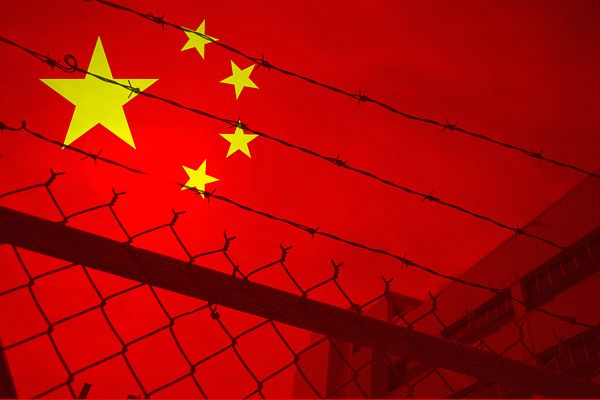As is the norm with Chinese authorities, wide spread restrictions were imposed in Tibet and other Tibetan areas on Tibetans celebrating Losar (Tibetan New Year). China has banned all major religious activities in and around Tibet’s capital Lhasa during celebrations marking the Tibetan New Year, which began on Mar 3. Tibetans have been faced with widespread obstruction and interference. This sort of intimidation, alongside restrictions on festivities, is part of a broader strategy by the Chinese Communist Party to undermine Tibetan identity. Like previous years, Authorities in Tibetan areas have restricted travel and public gatherings with punishments threatened for those violating the bans, Tibetan sources say.
In several locations, Tibetans working in government jobs were required to report to work during the New Year so that they could not go back to their hometowns to celebrate. “I wanted to celebrate Losar openly,” one Lhasa resident told RFA’s Tibetan Service, speaking on condition of anonymity. “But then due to harassment and restrictions put in place by the Chinese authorities, I don’t feel like celebrating at all.” It’s a pity, a person can’t even peacefully pray as per his will even on an auspicious day.
This year, Wang, 58, popularly known as the “butcher of Xinjiang, the most internationally sanctioned Chinese leader because of his role in the globally condemned genocidal campaign in Xinjiang, who became the leader of Tibet Autonomous Region (TAR) in October last year, visited (Feb.19) monasteries in Tibet’s capital Lhasa to warn monks against engaging in activities which could be deemed as anti-China ahead of the Tibetan New Year on March 3 and especially the 63rd anniversary on March 10 of the Tibetan National Uprising Day. Earlier, Wang, had, visited the Ramoche Temple in Lhasa and the Gaden Monastery in the Lhasa’s outskirt on February 17 to remind monks of their obligation to be “patriotic and law-abiding” citizens, loyal to the party, reported the Radio Free Asia on February 18. RFA also stated that Wang has also instructed the monastery management committees in both the places, to enforce rules against making assertions of Tibetan cultural and national identity as they are deemed to be “separatist” activities,
Separately, Lhasa’s Ethnic and Religious Affairs Bureau announced (Feb 22) a ban on the celebrations of Losar, citing Covid-19 concerns said the Radio Free Asia on Mar 4. However, the whole of Tibet Autonomous Region has been free from the Covid, and China’s official media has highlighted the record numbers of visitors to the region in several recent reports. Radio Free Asia said that the order especially applied to different monasteries in and around Lhasa. “The notice bars Tibetans from performing all the major religious activities that are usually observed ahead of and during the New Year,” Ngawang Woebar, a former political prisoner now living in Dharamsala, India, said. It was also reported that Chinese security forces had already been deployed around the city ahead of the Losar.
However, like last year US State Department has shown support for Tibetan’s cultural freedom and held a virtual celebration of the Losar. During celebration, Uzra Zeya, the new US special coordinator for Tibetan issues, praised Tibetans for working to preserve their traditions and pass them on to the next generation despite the Chinese government’s efforts to eliminate Tibetans’ unique culture, religion and language.
Zeya remarked that “I will actively promote meaningful and direct dialogue without preconditions between the government of the People’s Republic of China and the Dalai Lama or his representatives, leading to a negotiated agreement on Tibet. She also called on likeminded countries to join in this effort. Zeya also called out the Chinese government for surveilling and harassing Tibetans in exile and trying to silence them by threatening their relatives in Tibet. “The PRC must not only cease its harassment, intimidation and surveillance of Tibetan diaspora communities in the United States and elsewhere,” Zeya said, “but must stop its practice of punishing family members living in the PRC in retaliation.”
First Secretary of State Blinken raised the issue of China trying to control the selection of Tibetan Buddhist leaders—including a future Dalai Lama—as well as the Chinese government’s efforts to restrict the use of the Tibetan language inside Tibet, where 95% of schools now teach in Mandarin as their primary language.
“Tibetans, like all people, have the right to practice their customs and pass them on to future generations,” Blinken said. “This includes teaching and speaking the Tibetan language, selecting their religious leaders without interference and freely celebrating holidays and cultural events like Losar. “Supporting these human rights is a priority for the United States,” Blinken said. He also stated that “In this new year, we look forward to continuing our close cooperation with Tibetan leaders”.
Repression against Tibetan Buddhists (in Tibet) remains pervasive according to the International Federation for Human Rights, monks and nuns make 58% of Tibet’s political prisoner population. These prisoners, as well as the Tibetans prosecuted for their purportedly separatist activities, are persecuted due to their religious beliefs, indicating that the religious freedom enshrined in China’s Constitution does not apply on the ground, at least not to Tibetan Buddhists.

Leave a Reply